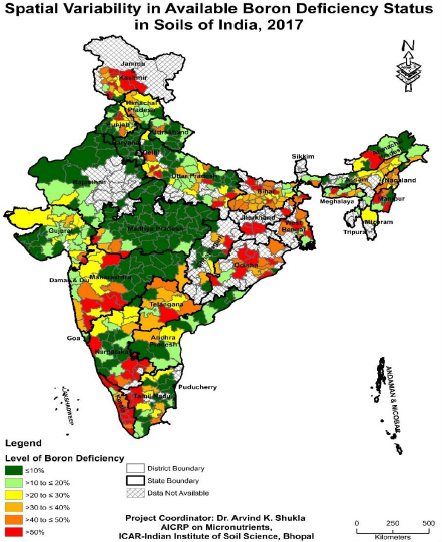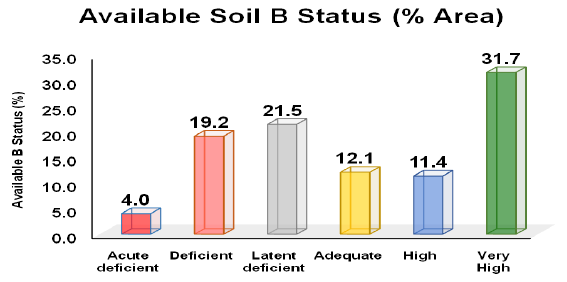Recent trends due to the global pandemic are prompting an increasingly urgent question around the future of global food security. Indian agriculture, which ranks second worldwide in farm outputs, is certainly not an exception.
In a significant mindset shift, the government of India’s focus is moving from increasing farm output to improving farmer incomes—with a target to double farmers’ incomes by the end of the 2023 season. If successful, this will enhance productivity and have effects on the larger agriculture ecosystem.
To improve productivity and crop health, the Indian government is encouraging the balanced use of all agriculture fertilizers, including:
- Bulk fertilizer (urea, DAP, NPK, and SSP)
- Secondary nutrient fertilizers
- Micronutrient fertilizer
- Organic fertilizers
Given that the Indian fertilizer industry is the second largest worldwide, this has an enormous impact both regionally and globally.
Boron and India’s soil
In 1994, U.S. Borax began promoting the use of boron as a critical micronutrient in Indian agriculture. Today, boron is recognized as the second most important micronutrient (according to the Fertilizer Control Order).
India has a variety of crops, soil types, and climatic conditions, yet the soil is 24% deficient in boron. The extensive use of irrigation, chemical fertilizers, and pesticides has contributed to soil infertility across much of the country.

(Source: Indian Institute of Soil Science, ICAR 2018)

(Source: Indian Institute of Soil Science, ICAR 2018)
Boron: An essential secondary nutrient
This micronutrient is an essential fertilizer input for plant growth. Every high-value food you consume including fruits and vegetables has boron in it. Without boron, crops will be malformed, for example:
One Indian crop, in particular, is especially helped by boron fertilization—sugarcane. The importance of boron for sugarcane can't be understated; this crop is very responsive to boron. And, the fertilization process is relatively easy as fertilizers are mainly applied to the soil with compacted, granular fertilizers being particularly popular.
Refined boron micronutrient fertilizer for better crops
India does not have any economically viable deposits of borax and is entirely dependent on imports to meet demand. Whether through distributors or by working directly with large agriculture corporations, U.S. Borax currently supplies 40% of the refined borates demand in India.
We offer a variety of products to meet local demands, including:
Resources